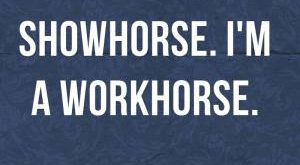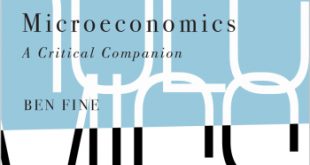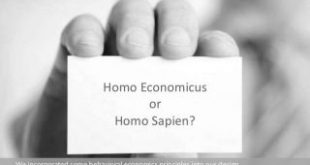Paul Romer on Richard Thaler I understand the purely aesthetic appeal of a convincing scientific explanation … The problem is that people can derive aesthetic pleasure from many different types of “explanation.” After all, the problem with the traditional choice model based on conscious utility maximization is not that it is ugly. And, on grounds of mathematical beauty, no economic model can touch a theory of perfect competition grounded in convex duality....
Read More »Microeconomic aggregation problems
If a demand function for the economy as a whole is to be estimated, just drawing upon the economy’s overall income and the price system, is it legitimate to use the demand system derived for an individual? In other words, can we estimate demand functions independently of the distribution of income and preferences across consumers? Not surprisingly, the answer is no in general, and the conditions for it to be yes are extremely stringent, indeed unrealistically so. Essentially,...
Read More »How to get published in top economics journals
How to get published in top economics journals If you think that your paper is vacuous, Use the first-order functional calculus. It then becomes logic, And, as if by magic, The obvious is hailed as miraculous. Paul Halmos div{float:left;margin-right:10px;} div.wpmrec2x div.u > div:nth-child(3n){margin-right:0px;} ]]> Advertisements
Read More »Putting theories to the test
Putting theories to the test Mainstream neoclassical economists often maintain — usually referring to the methodological individualism of Milton Friedman — that it doesn’t matter if the assumptions of the theories and models they use are realistic or not. What matters is if the predictions are right or not. But, if so, then the only conclusion we can make is — throw away the garbage! Because, oh dear, oh dear, how wrong they have been! The empirical and...
Read More »Axioms — things to be suspicious of
Axioms — things to be suspicious of To me, the crucial difference between modelling in physics and in economics lies in how the fields treat the relative role of concepts, equations and empirical data … An economist once told me, to my bewilderment: “These concepts are so strong that they supersede any empirical observation” … Physicists, on the other hand, have learned to be suspicious of axioms. If empirical observation is incompatible with a model, the...
Read More »Thaler and behavioural economics — some critical perspectives
Thaler and behavioural economics — some critical perspectives Although discounting empirical evidence cannot be the right way to solve economic issues, there are still, in my opinion, a couple of weighty reasons why we perhaps shouldn’t be too excited about the so-called ’empirical revolution’ in economics. Behavioural experiments and laboratory research face the same basic problem as theoretical models — they are built on often rather artificial conditions...
Read More »Keynes — the first behavioural economist
Keynes — the first behavioural economist To-day, in many parts of the world, it is the serious embarrassment of the banks which is the cause of our gravest concern … [The banks] stand between the real borrower and the real lender. They have given their guarantee to the real lender; and this guarantee is only good if the money value of the asset belonging to the real borrower is worth the money which has been advanced on it. It is for this reason that a...
Read More »Nobel Committee making a colossal fool of itself
Nobel Committee making a colossal fool of itself In its ‘scientific background’ description on the 2017 ‘Nobel prize’ in economics, The Royal Swedish Academy of Sciences writes (emphasis added): In order to build useful models, economists make simplifying assumptions. A common and fruitful simplification is to assume that agents are perfectly rational. This simplification has enabled economists to build powerful models to analyze a multitude of different...
Read More »What is behavioural economics?
What is behavioural economics? [embedded content] Great lecture! Yours truly especially appreciates Thaler’s excursion into the history of economics, forcefully showing the amazing extent to which mainstream economics suffers from severe amnesia. And trying to save it as e. g. Paul Krugman, arguing that rationality “in some parts of economics … seems to be a bit of a noble lie, useful as a guide for thinking as long as you keep your tongue firmly in your...
Read More »Richard Thaler gets the 2017 ‘Nobel prize’
Richard Thaler gets the 2017 ‘Nobel prize’ Today The Royal Swedish Academy of Sciences announced that it has decided to award The Sveriges Riksbank Prize in Economic Sciences in Memory of Alfred Nobel for 2017 to Richard Thaler. A good choice for once! To yours truly Thaler’s main contribution has been to show that one of the main building blocks of modern mainstream economics — expected utility theory — is fundamentally wrong. If a friend of yours...
Read More » Lars P. Syll
Lars P. Syll









